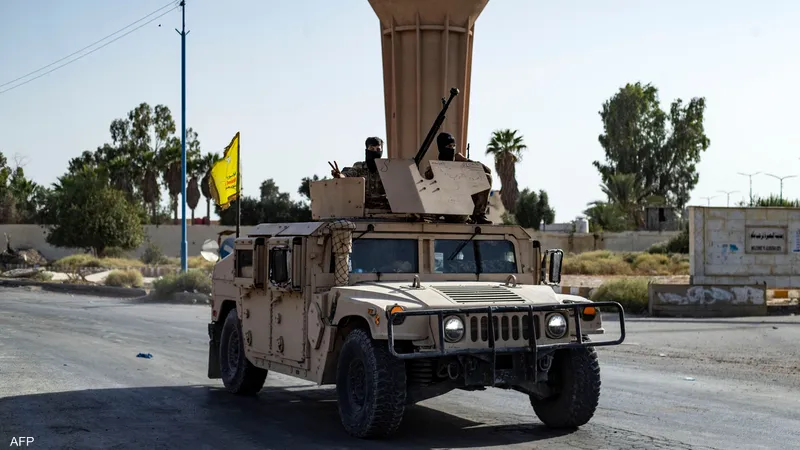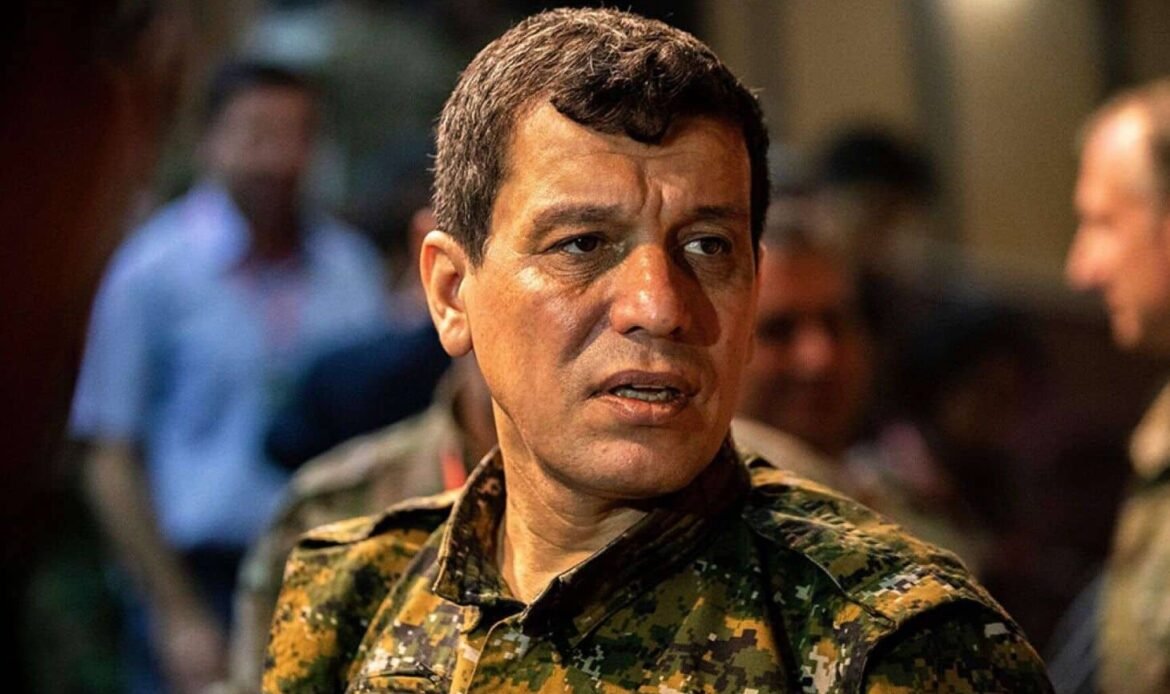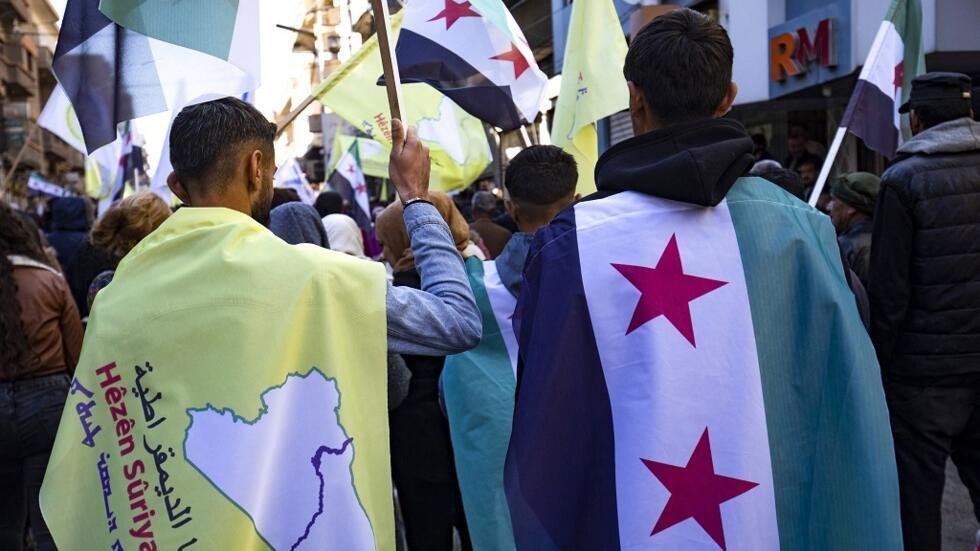Mazloum Abdi: Ready to Integrate into the New Syrian Army with Resources for All
Mazloum Abdi, the commander of the Syrian Democratic Forces (SDF), has expressed readiness for the SDF to integrate into the new Syrian army, contingent upon negotiating a “suitable formula.” He stressed the importance of maintaining a united Syria where the political system’s shape is determined by the will of the people and the constitution.
In an interview with “Asharq Al-Awsat” newspaper, Abdi indicated his “principle” willingness to hand over border security responsibilities to the new authorities in Damascus, warning of a potential catastrophe in the city of Kobani (Ain al-Arab) due to ongoing Turkish military buildup.
Abdi called for an immediate, direct, and comprehensive dialogue to usher in an era of peace and
security, enabling Syria to move forward and rebuild. He stated, “We have not yet reached direct
negotiations with Hayat Tahrir al-Sham, but we believe Syria should be a democratic,
decentralized state where the diverse identity of the country is constitutionally protected, along
with the rights of all Syrian components, including the Kurdish people.”
He further clarified, “We are not seeking to divide Syria; we are ready to play our part in building
and participating in the government that will manage the country. Syria has seen much
bloodshed, and we urgently call for a full and direct dialogue today.”
During negotiations, Abdi pointed out, practical considerations must be acknowledged, with the
primary focus being the cessation of military operations across all Syrian territories, especially
the attacks by Turkey and its allied factions against the SDF. This would allow Syrians to discuss
their country’s future among themselves, free from external interventions or guardianships. He
emphasized that areas under Autonomous Administration are Syrian regions, and their
representatives should have a role and voice in shaping the future.
On the topic of the country’s resources
Abdi affirmed that these belong to all Syrians, committing to a future where resources are
distributed by the state for the benefit of all, in a fair and equitable manner that ensures stability
and prosperity for everyone, taking into account the status of regions marginalized by Assad’s
regime.
Abdi also mentioned indirect communications with Turkey through the United States, expressing
a desire for direct negotiations to address Turkish concerns. However, he noted that Turkey has
not yet shown readiness for such talks despite the SDF’s willingness.
Finally:
He clarified that the SDF does not have organizational ties to the Kurdistan Workers’ Party (PKK),
stating, “Some of its members and others joined us in our fight against ISIS and fought alongside
us, but they will be expelled once military operations cease, and a suitable mechanism for this is
found.”
This article aims to shed light on the complex negotiations and visions for peace and governance
in post-conflict Syria, emphasizing the role of the SDF and the broader implications for national
unity and resource management.





